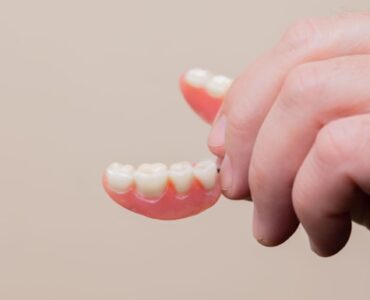Binge Eating Disorder (also known as BED) is characterised by periods of excessive eating. A common misconception is that people affected by BED make themselves sick or “purge” after consuming large amounts of food, which is generally not the case with this disorder. So, in this article, we’re going to cover off some of the other common myths associated with this condition.
As BED is associated with feelings of being unable to control when to stop eating, over time the disorder may lead to weight gain. Binges almost always occur in secret, as feelings of guilt may overcome the person. Because of this, they’re more likely to keep up the appearance of normal consumption when in front of others. The food confumsed is usually filling and high in calories – think junk food, cakes, sweets that are high in sugar, fatty goods, and those with lots of salt. Food is generally consumed very quickly, with some patients explaining they barely taste anything or have a chance to enjoy it.

What are the symptoms of binge eating?
- Not being able to control portions
- Consuming large amounts of food frequently
- Feelings of being unable to stop eating
- Eating quickly and in secret due to feelings of shame
- Feeling unpleasantly full after eating
Yes. BED is a serious mental health condition that affects patients in various ways. As a result of binge eating, the patient may put on weight and eventually fall under the classification of obese. While many of the health consequences associated with BED are directly related to obesity, it is important to understand there is a division between this single symptom and the disorder itself. BED can cause obesity, but obesity is not always caused by BED. The disorder has a significant and serious impact on the physical and emotional health of the person affected, and health consequences, as a result, may lead to:
- Digestive problems
- Malnutrition
- Significant weight gain
- High blood pressure
- High cholesterol levels
- Heart disease
- Diabetes
- Gallbladder disease
I’ve heard so many things about it, I don’t know what to believe
Myth: Eating disorders only affect teenage girls.
Fact: Just like all mental health disorders, BED can affect people of all ages, races, classes, genders and sexual orientation and can appear at any time throughout their life.
Myth: These disorders are about food and people wanting to be skinny.
Fact: EDs have very little to do with food and the body but rather mental health complexities that require treatment.
Myth: They are not very serious.
Fact: As we discussed, BED is a serious condition. In fact, eating disorders have the highest mortality rate of any mental health issue.
Myth: People are either anorexic, bulimic, or binge eaters – but never all three.
Fact: ED categories cross over more often than not and require a range of supports and treatmnts to help the patient. If you are seeking help for binge eating, please contact a friendly member of Bayside Psychotherapy today for more information and to book a consultation.
https://www.healthline.com/nutrition/binge-eating-disorder#symptoms
https://www.eatingdisorders.org.au/eating-disorders-a-z/binge-eating-disorder/



